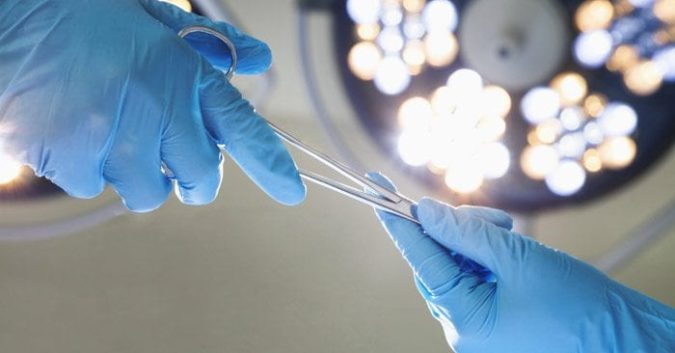When you think of the top hospitals in the country, Massachusetts General Hospital (MGH) in Boston probably comes to mind. After all, it is the original and largest teaching hospital of the prestigious Harvard Medical School, which attracts only the best and the brightest from around the world.
So why then, is a recent study showing that about half of the surgeries performed in this world-renowned medical center result in some sort of medication error or adverse drug effect? And if this is happening at MGH, what’s happening in other less-noted hospitals around the country?
Researchers Call Out Perioperative Drug Errors
The study — “Evaluation of Perioperative Medication Errors and Adverse Drug Events” — was conducted by 4 specially trained members of the MGH research team. They observed 225 different anesthesia providers during 277 randomly selected operations at MGH that occurred between November 2013 and June 2014.
From the second a patient arrived in the preoperative area until they were moved into the recovery room, the researchers were there to observe every single detail of how the medication was being handled.
Once all of the data was reviewed, the individuals leading the study shared some alarming findings:
- A mistake or adverse event occurred in every second operation.
- Just over 1 in 20 perioperative medication administrations resulted in a medical error or adverse drug event.
- 80 percent of medication errors or adverse drug events were labeled as preventable.
- One-third of medication errors led to an adverse drug event.
- Of all adverse events and errors that could have caused a patient harm, 4 were intercepted by operating room staff before the patient was affected, 30 percent were significant, 69 percent were serious, and less than 2 percent were life-threatening.
What types of errors were the medical professionals making? The ones most frequently observed involved mistakes in labeling, incorrect dosage, neglecting to treat a problem indicated by the patient’s vital signs, and documentation of errors.
“Given that Mass. General is a national leader in patient safety and had already implemented approaches to improve safety in the operating room, perioperative medication error rates are probably at least as high at many other hospitals,” said Karen C. Nanji, MD, MPH, of the MGH Department of Anesthesia, Critical Care & Pain Medicine, and lead author of the report.
This study was the very first to measure the incidence of medication errors and adverse drug events immediately before, during, and right after a surgical procedure. Before this, most numbers were based on self-reported data, which always has a tendency to underrepresent true error rates.
Given its reputation for excellence, MGH will undoubtedly use this data to improve their procedures, but for the average person seeking hospital care in our country, they’re far less likely to walk through the doors of a facility that takes error prevention so seriously.
Medical Errors Are the Third Leading Cause of Death in the U.S.
The results of the MGH study are not a fluke — they are the reality Americans are facing right now. Another recent study from the researchers at Johns Hopkins University revealed that medical errors are the third leading cause of death in the U.S., with at least 251,000 deaths resulting every single year.
Medical errors claim more lives than respiratory disease, accidents, stroke, and Alzheimer’s; the only killers more deadly than medical errors are heart disease and cancer.
Some surgeons are even trying to hide these errors from affected patients. Many medical professionals are too afraid to lose their jobs or referrals after committing or witnessing an error, so they just stay silent.
Certain states that crack down on medical errors — California has issued $17 Million in fines to 192 different hospitals since 2007 — may also be pushing physicians to hide instead of coming clean.
Here’s a novel idea for these dishonest doctors: Concentrate more on preventing medical errors instead of hiding from them and everyone wins.
New Technology Could Help Prevent Medical Mistakes and Medical Malpractice
A study out of another Boston hospital, Brigham and Women’s Hospital, is showing the benefits of using web tools to prevent medical errors. The web tool at Brigham and Women’s was used to scan electronic patient records as a way of providing medical professionals with key information during handoffs.
Before the tool was used, researchers documented 77 errors during handoffs between November 2012 and February 2013. Once clinicians began using the tool, only 45 errors were noted the following year.
The tool at Brigham and Women’s was built in-house and is unique to the institution, but its implementation and success should be something that other hospitals play close attention to.
“As hospital care is increasingly shift-based, a clear and efficient handoff process is vital, said Robert Wachter, MD, interim chair of the University of California San Francisco’s Department of Medicine, in a letter published alongside the research. “The study…shows how web-based handoff tools may improve hospital workflow and patient safety, but only if they are carefully built and integrated into existing systems.”
Will a tool like the one at Brigham and Women’s completely eliminate medical errors and incidents of medical malpractice? Highly unlikely.
Will it help stop medical errors from being the third leading cause of death in our country? Maybe — but we need America’s medical professionals to take these errors seriously, own up to their mistakes, and work toward effective solutions to keep patients safe.
If you suffered injuries from a medical mistake in Massachusetts, call Sokolove Law today at (800) 995-1212. Our Boston medical malpractice lawyers may be able to help. We can also help clients nationwide.
